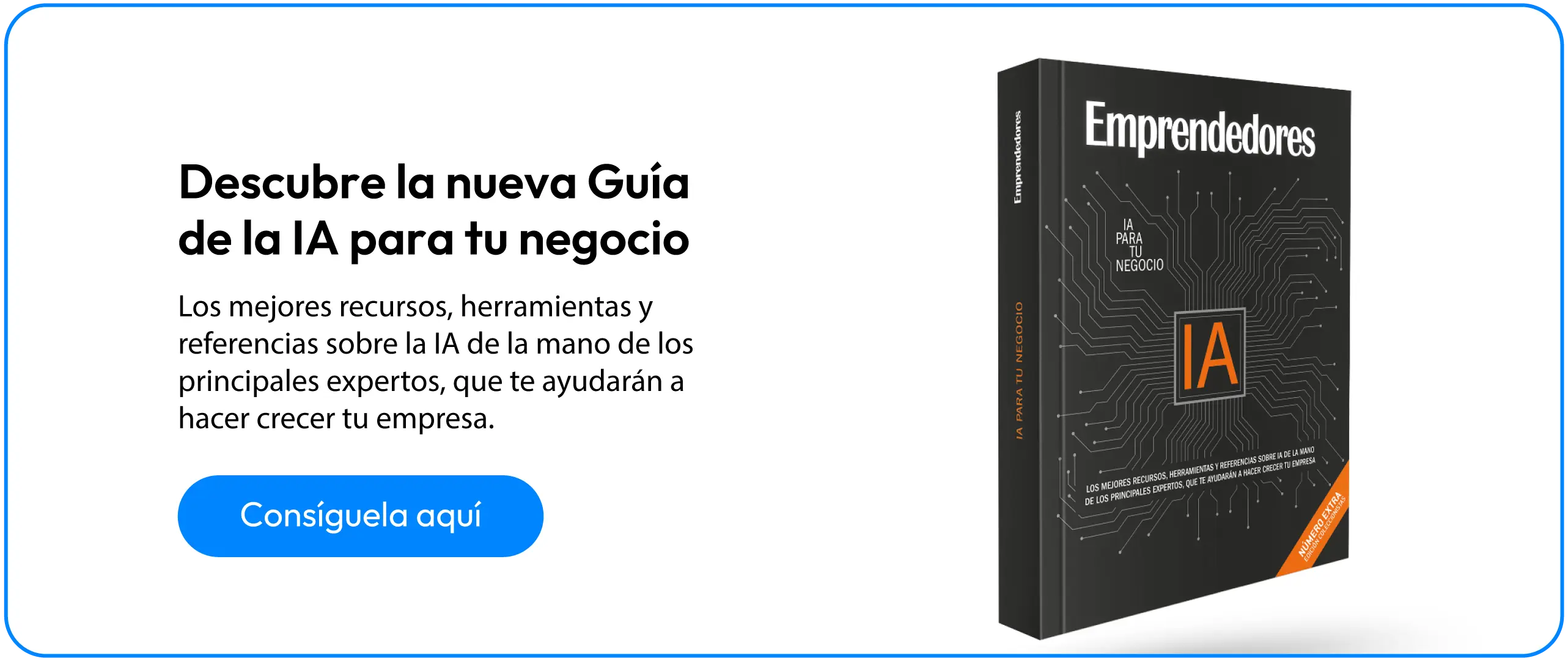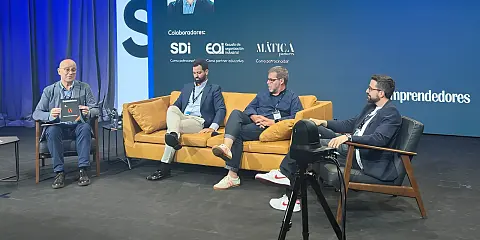
The ultimate guide to applying AI with insight: from theory to real-world cases that transform your business
July 1, 2025
Testimonials, ideas, and a practical guide to applying AI smartly
We are living through a new technological boom. Just as the 1990s were marked by the Internet “boom” and the 2000s by “big data,” today artificial intelligence (AI) dominates headlines, boardrooms, and public debate. But amid all the noise and hype, small and medium-sized enterprises (SMEs) are left wondering: Is this really for me? How can a business of five, ten, or twenty people take advantage of a technology that seems made for giant corporations or futuristic labs?
To answer that question, Emprendedores Magazine organized the event “AI for Your Business,” where the new Entrepreneurs' Guide to Artificial Intelligence was presented—a publication that is not a magazine, book, or manual, but combines the best of each format to offer clear guidance, real-life case studies, and a realistic roadmap for businesses looking to use AI as a tool for growth and competitiveness.
This article summarizes the insights, experiences, and testimonials shared during the event—a roadmap to understand, from the voices of real entrepreneurs, why AI is no longer a future promise but a present necessity.
Want to know how to start applying AI in your business? Discover how other SMEs are doing it, which mistakes to avoid, and the steps to follow with the Entrepreneurs' Guide to Artificial Intelligence. Now available at Emprendedores Magazine.
The impact of AI on the daily operations of businesses
Moderated by Alejandro Vesga, the first panel featured voices like Carlos Guardiola (Sngular), Alberto Santarén (SDI Digital Group), and Natsir Turrado (SEO and AI specialist). The discussion revolved around a key question: How is AI really affecting the day-to-day operations of businesses?
A central idea came from Carlos Guardiola, who stated, “Artificial intelligence is neither the question nor the answer. It’s an enabling technology.” According to him, its real value lies in opening up possibilities that were previously unavailable. He urged entrepreneurs to reflect in terms of transformation potential: “What can I do now that I couldn’t do before? Where do I have processes that could be radically transformed by AI?”
This shift in perspective means moving from asking “What tool should I use?” to “What real problem do I have, and how can I solve it with the tools available today?” Guardiola emphasized that many conversations are focused on the wrong starting point—the technology—when they should begin with business objectives.
From a hands-on perspective, Alberto Santarén showed how that mindset translates into tangible improvements for SMEs. He described real scenarios in which AI is already helping teams save hours on repetitive, operational tasks. For example, with virtual assistants that answer employee questions, generate reports, or support the marketing department with tailored content. “AI should give us back time, not take it away,” he emphasized, stressing the importance of avoiding solutions that complicate more than they help.
The session closed with a critical yet necessary perspective from Natsir Turrado, an expert in SEO and analytics. He warned of the risks of uninformed enthusiasm: “There’s nothing more dangerous than a fool excited about AI.” His comments focused on avoiding the use of AI as a trend or gimmick. He argued that before implementing language models or generative assistants, it’s essential to identify truly automatable processes that will have real impact. “Applying AI without criteria can be as harmful as not applying it at all,” he concluded.
Together, the speakers painted a clear picture: AI should not be seen as a magic solution or mandatory requirement, but as a strategic tool that—if applied wisely—can free up time, improve decision-making, and optimize resources. But it all starts with an honest analysis of the company’s real needs and a willingness to adopt technology with purpose, not pressure.
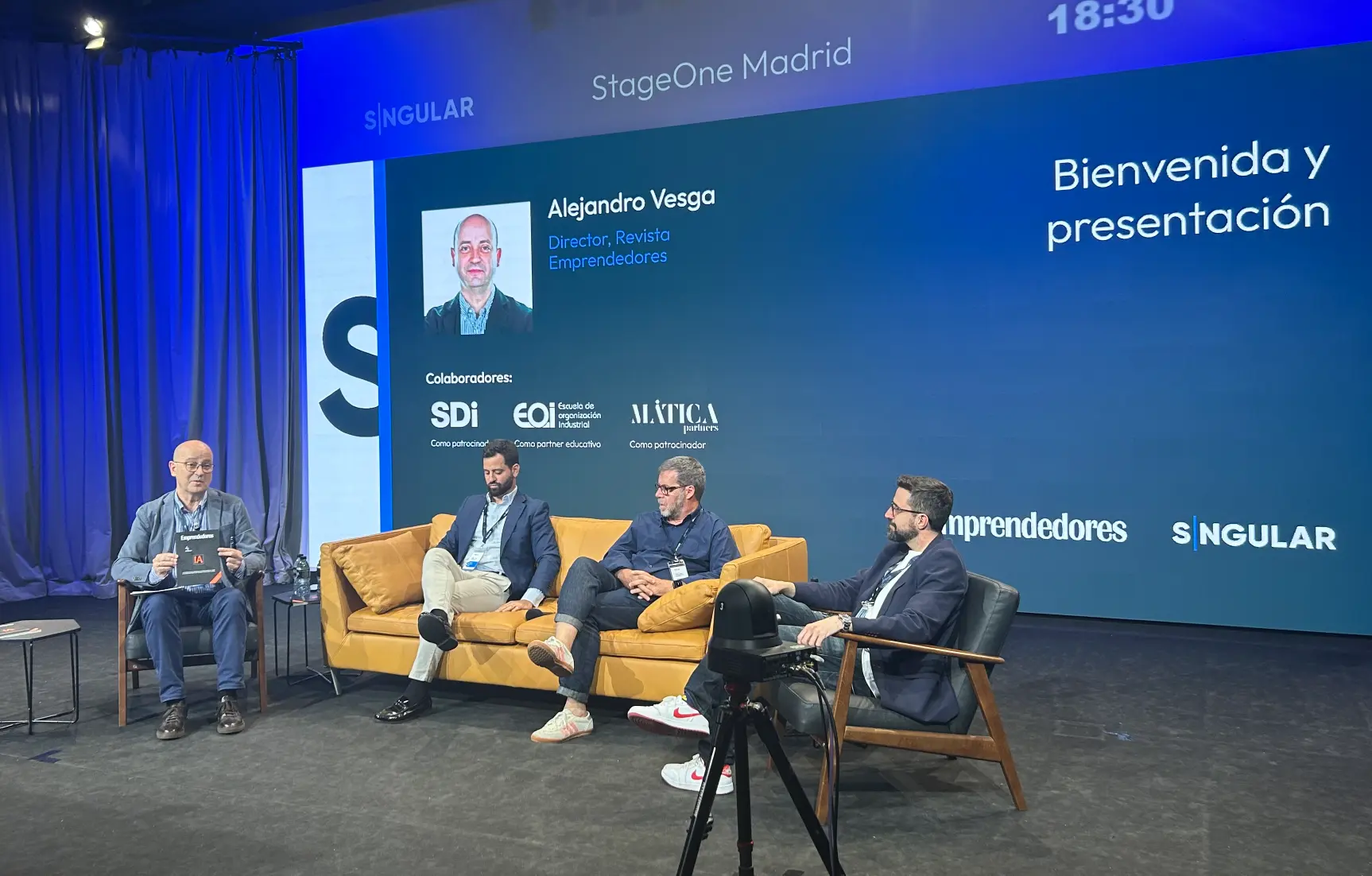
Where are the opportunities? AI as a competitive advantage
The second panel, focused on identifying specific application areas with tangible returns, brought together experts with practical, investment, and technical experience: Mark Serra (Mática Partners), Rubén Colomer (Next Tier Ventures), and María Alonso (Qaleon). They explored how AI can become a driver of scalability, efficiency, and differentiation for SMEs.
Mark Serra opened with an exemplary case of internal application. At Mática Partners, they developed a network of intelligent agents trained with the company’s operational knowledge. “We’ve gone from having 90 people to 900, thanks to our AI agents working like trained 'máticos',” he said. These agents are not generic—they learn the culture, processes, and language specific to each organization, acting as natural extensions of human teams and expanding capabilities without replacing talent.
Serra’s testimony illustrates how well-designed AI can scale operations without adding complexity, automating tasks such as document management, data extraction, and proposal writing. “The work of a machine for 24 hours costs us 45 cents,” he noted, highlighting the scalability of this model.
From an investor’s perspective, Rubén Colomer emphasized AI as a tool to remove friction and accelerate growth. “AI is democratizing innovation. Ten-person companies are generating millions in revenue because they can automate tasks that used to require large teams.” Colomer pointed out that the most attractive investment projects are not necessarily flashy—they’re the ones using AI to solve real problems efficiently: 24/7 customer support, content generation, logistics management, or automatic incident classification.
María J. Alonso added an essential perspective: sustainability and ethics in AI solution development. At Qaleon, they develop proprietary models and deploy them in controlled environments to ensure data privacy and avoid unwanted dependencies. “Not everything needs AI. Sometimes good automation is enough. And that’s innovation too,” she stated. She emphasized the importance of respecting intellectual property, ensuring data transparency, and designing solutions with energy efficiency in mind.
The panel concluded with a shared vision: AI is not a luxury for big companies, but an accessible advantage for businesses that can clearly identify their needs, adapt the technology to their context, and apply it responsibly. From multiplying capabilities to reducing operational costs, the opportunities are already within reach for many SMEs. But seizing them requires strategic focus, technical knowledge, and long-term vision.
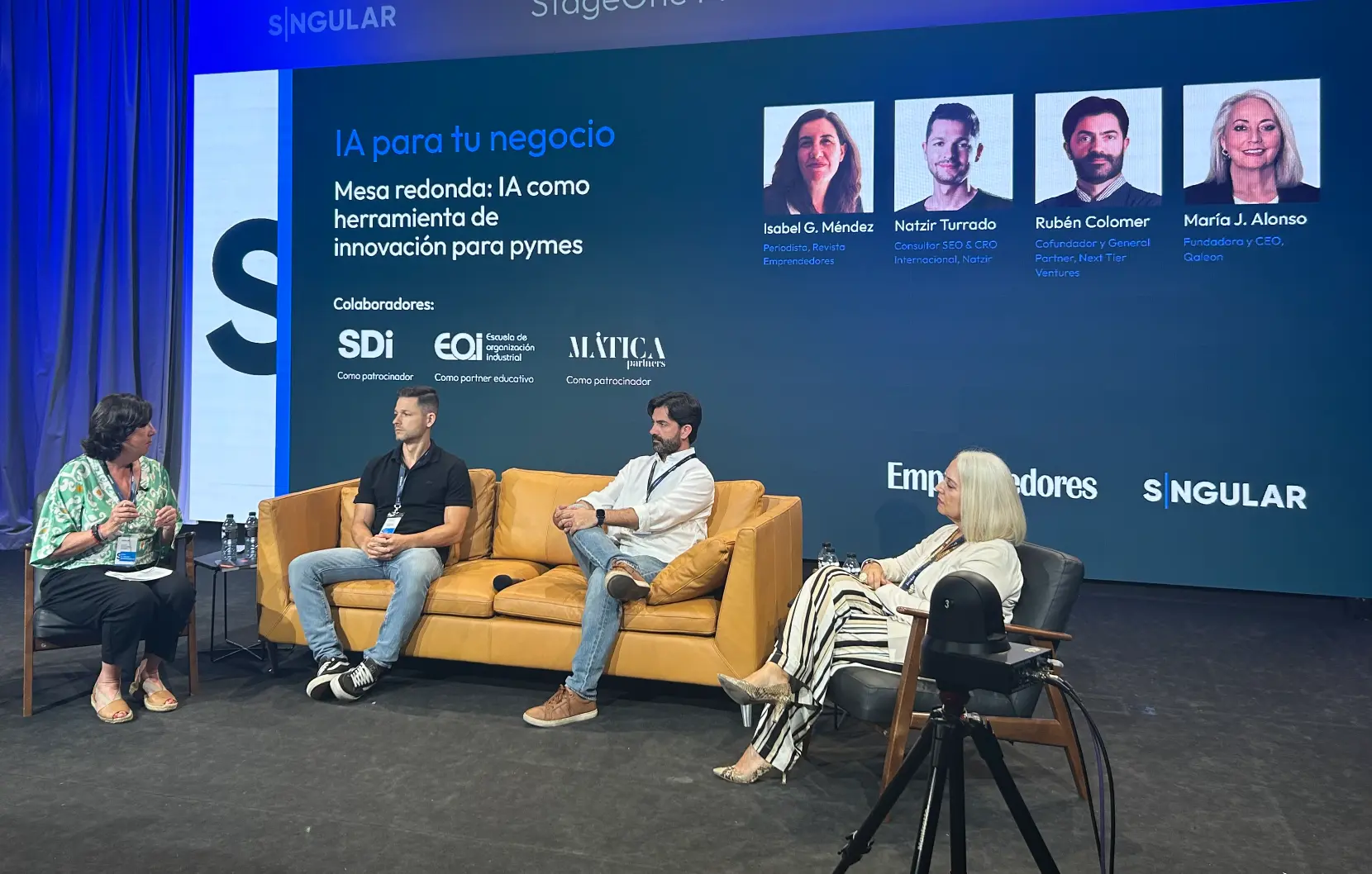
AI with social, ethical, and regional impact
The third and final panel took a different and deeply necessary approach: How can artificial intelligence generate a positive impact beyond the bottom line? Three professionals working at the intersection of technology, ethics, sustainability, and social transformation participated: Pedro Lozano (Imascono), David Llorente (Narrativa), and Ana Fernández del Río (Causal Foundry).
Pedro Lozano opened the discussion by highlighting how regions outside the traditional tech hubs can lead innovation with a more human perspective. “AI is the technology that makes the difficult easy and the impossible possible. But for that, we have to think first, not copy the neighbor,” he said. At Imascono, based in Zaragoza, they are developing AI-based solutions for immersive experiences in retail, education, and culture. The goal: to connect with people through emotion, not just automation.
This regional and emotional approach was complemented by David Llorente, CEO of Narrativa, who focused on the challenges of working with AI in highly regulated sectors like pharmaceuticals. Narrativa has managed to automate the generation of regulatory reports while ensuring confidentiality through local deployments. “We can’t work in the cloud. Everything is trained with internal data,” he explained. His model shows that AI can be applied in demanding environments without compromising privacy or data sovereignty.
Ana Fernández del Río, co-founder of Causal Foundry, closed the panel with a systemic and socially responsible perspective. She emphasized that the most transformative impact of AI is not necessarily in complex algorithms, but in improving access, adherence, and user experience in essential services. “It’s not just about predicting diseases. It’s about ensuring people stick to treatments, attend their appointments, and access a healthcare system that supports them,” she said.
The panel made it clear that AI should not be reduced to productivity metrics. It can—and must—be used to create more resilient regions, more humane healthcare systems, and products that connect with society ethically. Purpose-driven AI—centered on human well-being—may be the hardest to implement, but it’s also the most urgent in an increasingly automated world.
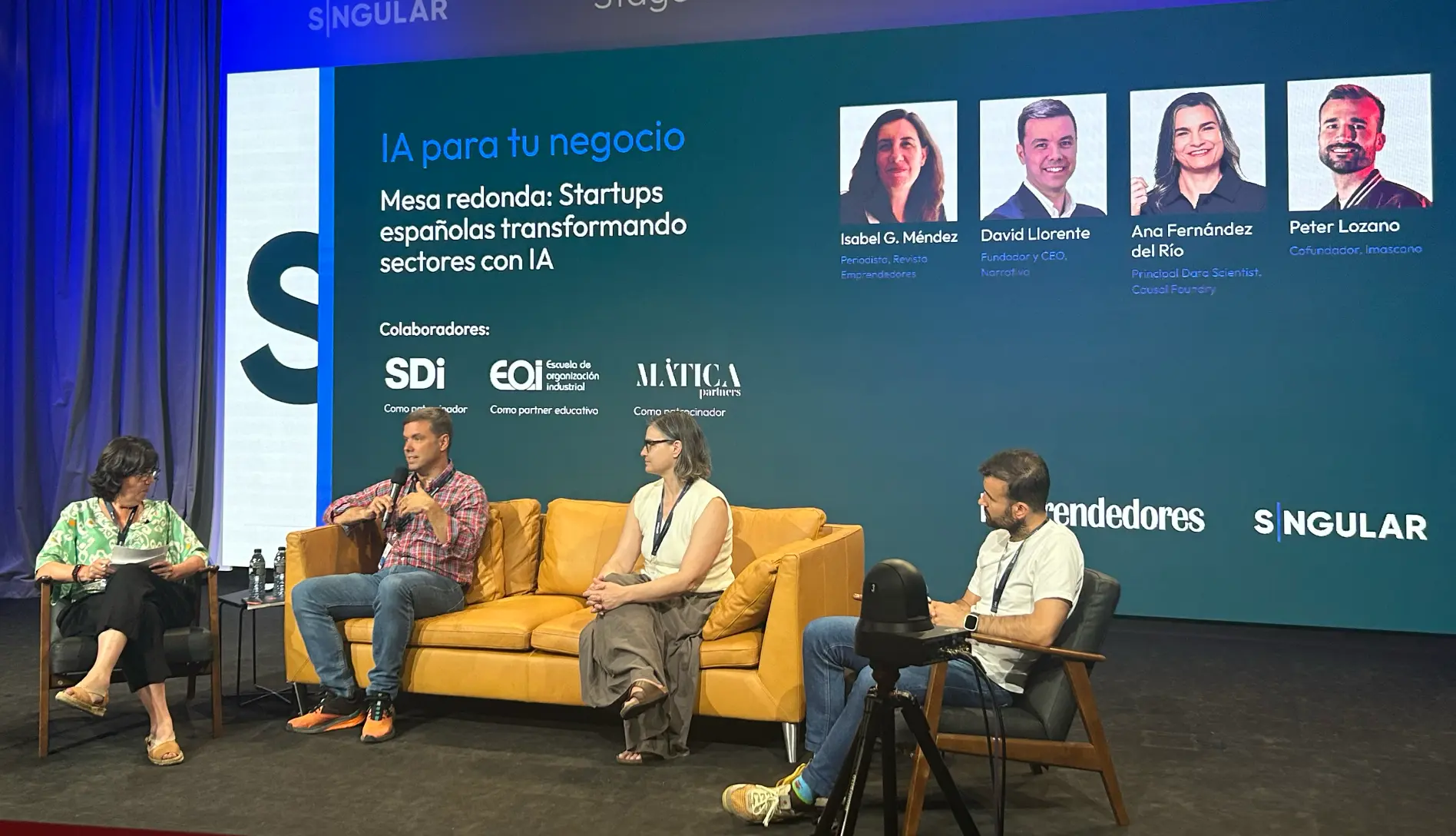
AI with purpose, strategy, and common sense
After a full day of diverse discussions, it became clear that artificial intelligence is no longer a futuristic concept—it is now an accessible, practical, and transformative tool for entrepreneurs and SMEs. Far from the sci-fi narrative, the experts agreed that its value lies not in technical complexity, but in responsible, thoughtful application.
From automating repetitive tasks and freeing up human talent to transforming customer experience, improving efficiency, or creating social impact, AI offers tangible, wide-ranging opportunities. But it also demands strategic thinking, technical understanding, and clearly defined goals.
As repeated throughout the event, applying AI without a clear “why” is as risky as not applying it at all. It’s not about following a trend, but about using it smartly and out of necessity. And for that, leadership teams need to understand what this technology can bring, how it affects their processes, and what they need to adopt it successfully.
That’s why the Entrepreneurs' Guide to Artificial Intelligence was created—so you can explore real-world cases, useful tools, and strategic recommendations to help small and medium-sized businesses take the leap with confidence.
Transform your business. With AI—but also with intention and insight.
Our latest news
Interested in learning more about how we are constantly adapting to the new digital frontier?

Tech Insight
May 28, 2025
LLMs, Vibe Coding, and software development

Event
May 26, 2025
Madrid pulses with the new era of Artificial Intelligence at the Google Cloud Summit 2025
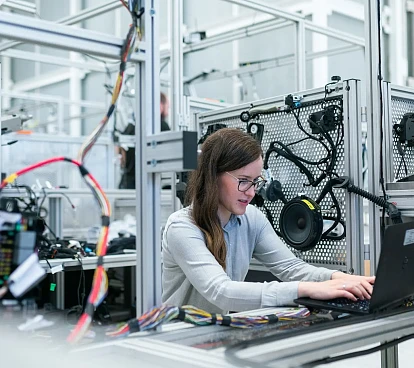
Insight
December 12, 2023
Opening a Gateway to the Future of AI

